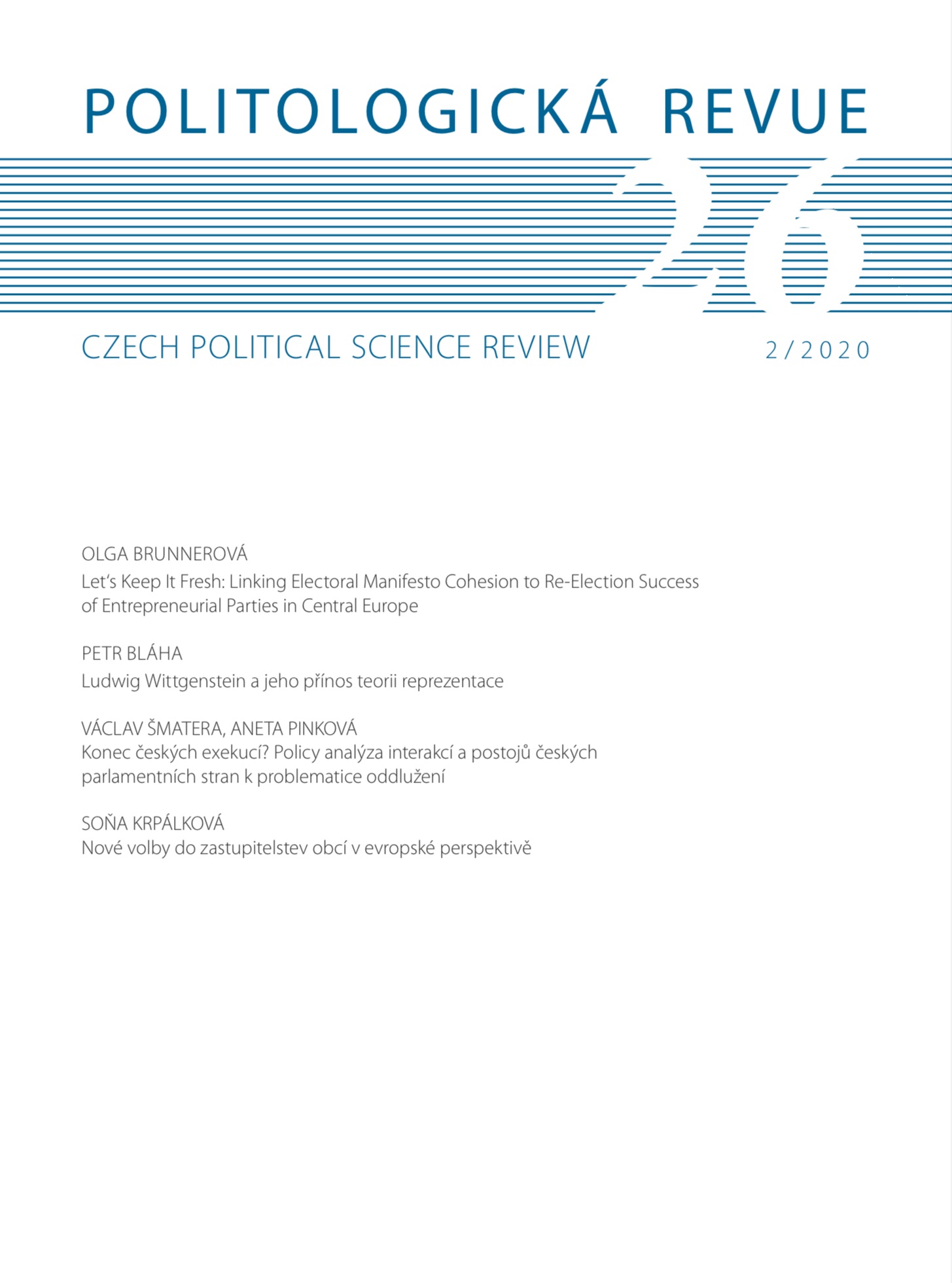Ludwig Wittgenstein a jeho přínos teorii reprezentace
Ludwig Wittgenstein and His Contribution to the Theory of Representation
Author(s): Petr BláhaSubject(s): Politics / Political Sciences, Political Philosophy
Published by: Česká společnost pro politické vědy
Keywords: theory of representation; political representation; theory of language games; Ludwig Wittgenstein
Summary/Abstract: This article focuses on Wittgenstein influence and contribution to political theory. The structure of the paper is linear and follows chronologically the period of Wittgenstein’s work, from the early work represented by the Tractatus Logico-Philosophicus to late Wittgenstein focusing on the theory of language games and the work on Philosophical Investigations and previous preparatory texts known as the Blue and Brown Books. To understand the author’s thought development and his relatively conflicting theories in both stages of Wittgenstein’s thinking, the paper considers it appropriate to interpolate the interpretation with a biographical method. However, the aim of the paper is not a comprehensive biographical sketch of Wittgenstein, but to explain why the author’s work has changed so significantly and how his reflection in the field of political representation has changed. The paper concludes that even at a time when political science is dominated by empirical analytical directions, political theory does not lose its significance and can turn to many authors who at first glance fall into completely different areas of scientific research. Many problems typical of the analytical philosophy of language find analogous topics in political theory or political science. Misunderstandings and analytical philosophy, if not the starting point, can offer clues to solve or explain these problems. And as Wittgenstein’s early theory of language influenced Hanna Pitkin’s classical theory of representation, it provides a possible way to explain the practice of constituting undemocratic regimes through language rules and threat representation. The late Wittgenstein offers a way to understand political debates about the nature of democracy, but also to explain why and on what basis citizens choose their representatives.
Journal: Politologická revue
- Issue Year: 26/2020
- Issue No: 2
- Page Range: 39-60
- Page Count: 22
- Language: Czech
- Content File-PDF

